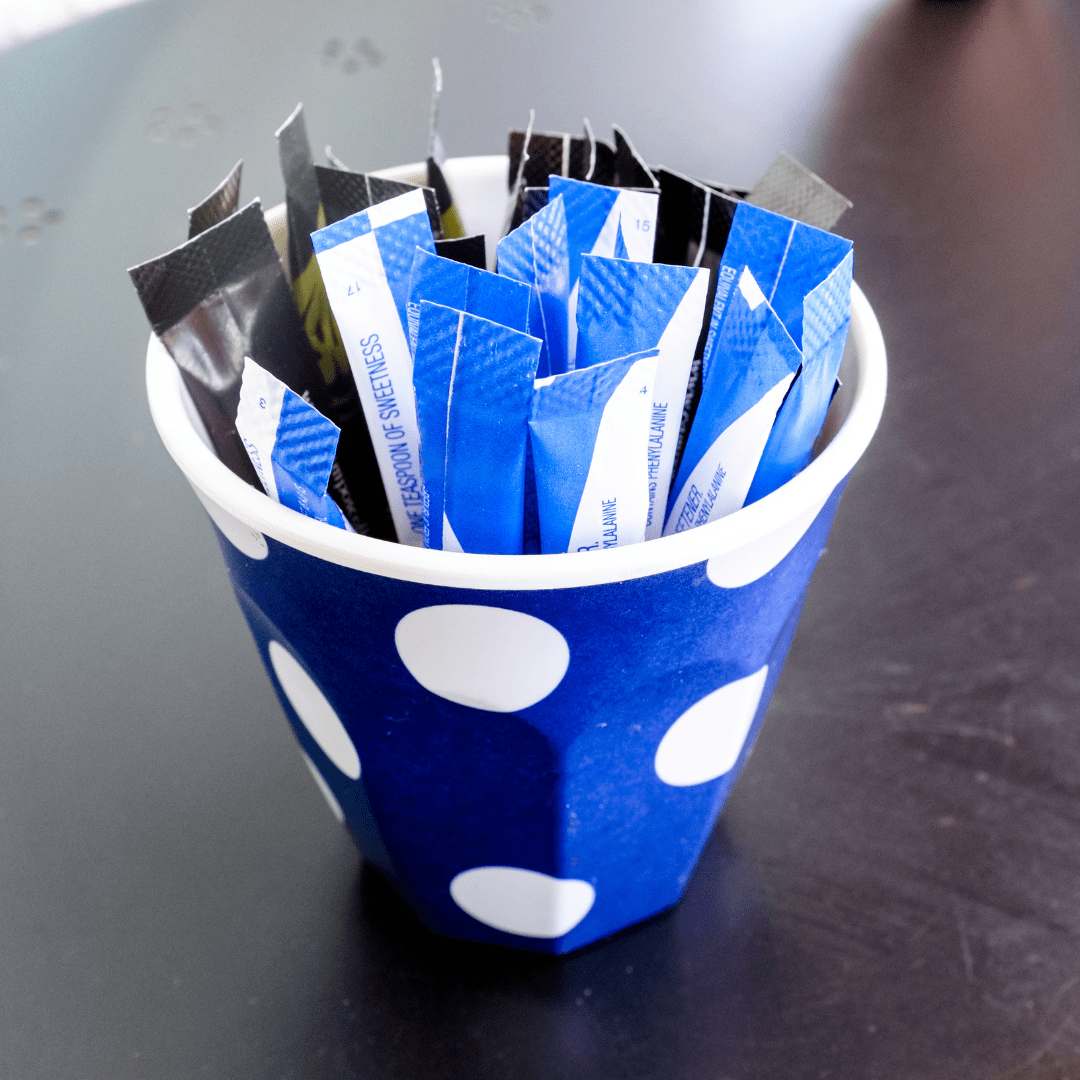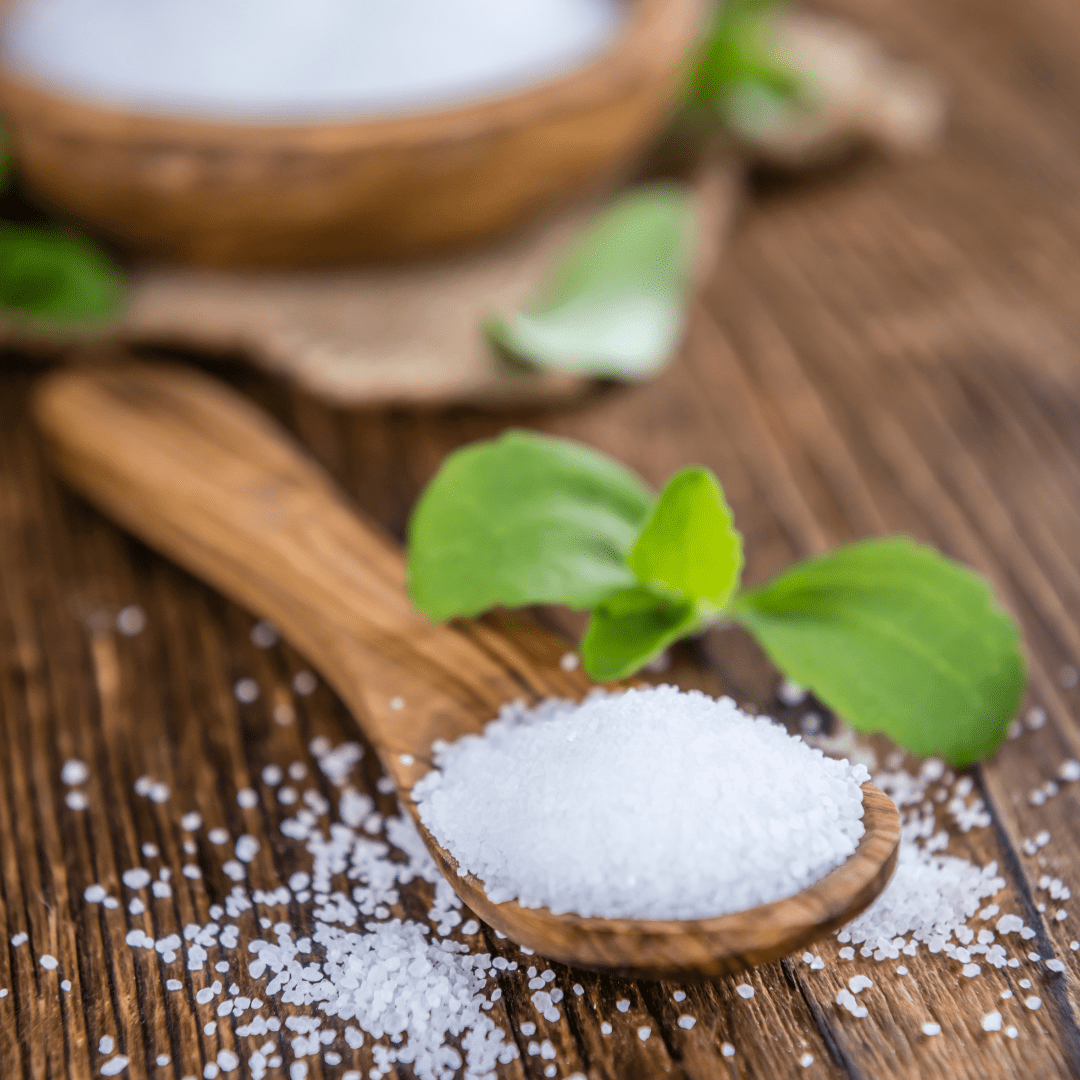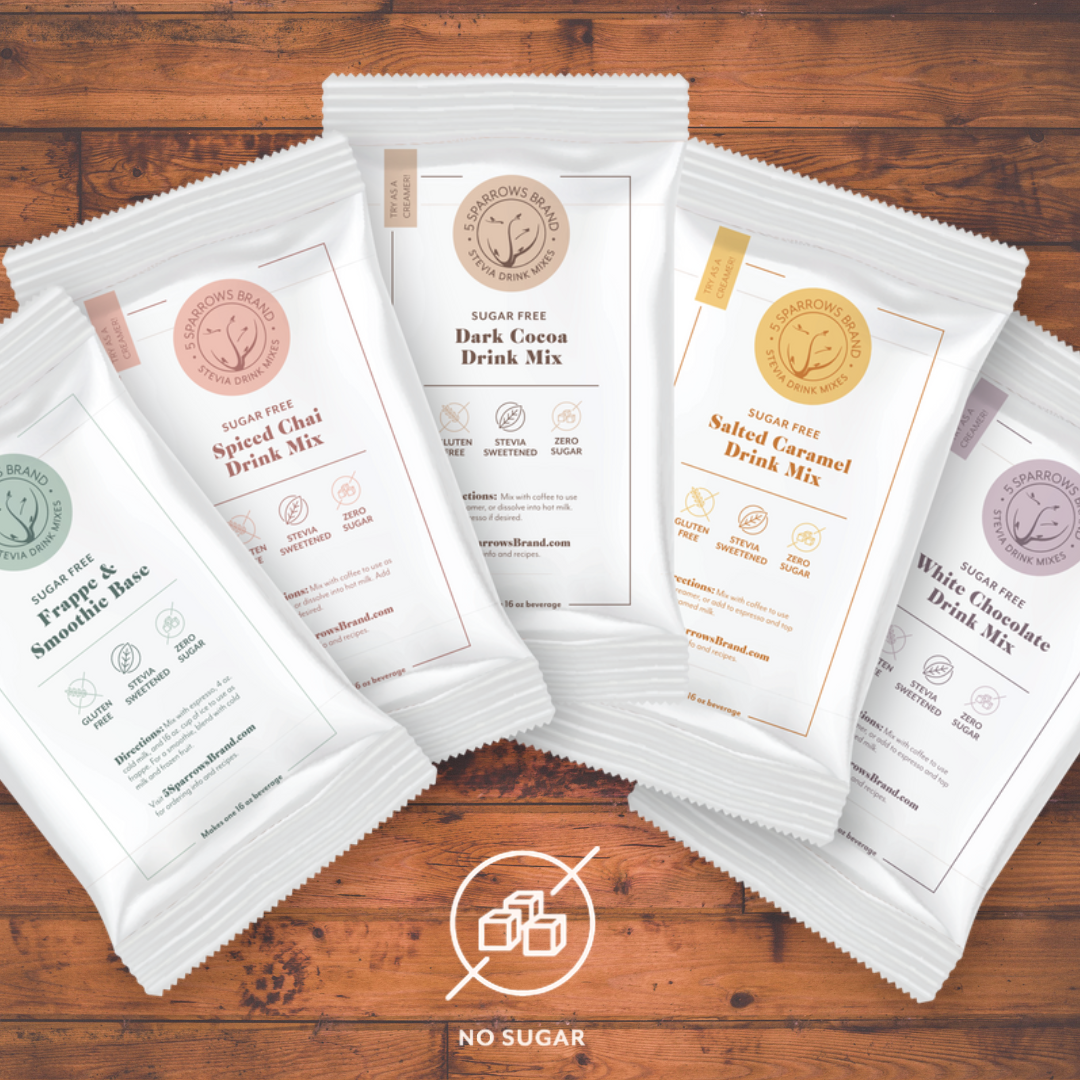Why Do Artificial Sweeteners Get a Bad Rap?
Posted by Melanie on 3rd Jan 2023

It’s that time of the year again: the holidays are drawing to a close, and people are starting to think ahead.
Many of us are making resolutions for what we want the coming year to look like and how we want to feel as we move into 2023.
For you, that may mean working out more or being more active. For many of us, it means cutting sugar, eating better, or finally figuring out how to cut artificial sweeteners for good.
If that last part resonates with you, you’re not alone! Artificial sweeteners get a bad rap, but few of us actually understand why or how to choose healthier alternatives.
In this blog, we’ll take a look at why artificial sweeteners have such a bad reputation and discuss ways to choose healthier alternatives in 2023 and beyond.
Let’s dive in.
4 Cringy Facts About Artificial Sweeteners
So, first things first: why is there so much negativity out there around artificial sweeteners?
After all, they were introduced as a way for people to enjoy sweet treats without gaining weight. At first, they seemed like miracle food, and developing them required no land for crops and no refineries for processing.
Plus, most of them pass through the body unmetabolized, which allows them to contain zero calories and be (theoretically) “safe” for people with diabetes.
What’s not to love? How could it possibly be more perfect?
Not so fast, though…
If it sounds too good to be true, it probably is.
Here’s the real low-down on artificial sweeteners:
1. Preliminary evidence suggests artificial sweeteners cause cancer
Over years of testing, research has shown that the most popular artificial sweeteners (saccharin, cyclamate, aspartame, and sucralose) present health risks, including an increased risk of cancer in lab animals.
Currently, more research is needed to prove causation. According to the National Cancer Institute at the National Institutes of Health, long-term human studies are scarce. Still, multiple animal studies have linked saccharin to bladder tumors in lab rats, aspartame to lymphoma and leukemia in rats, and sucralose to blood cell tumors in mice.
2. Artificial sweeteners may cause weight gain

While companies market artificial sweeteners as no- or low-calorie ways to enjoy sweets, studies have found artificial sweeteners may encourage weight gain - especially when consumed in large quantities.
Specifically, a study published in the Canadian Medical Association Journal found that consuming artificial sweeteners didn’t help people lose or maintain weight.
Instead, observational studies found that people who consume artificial sweeteners have a higher risk for weight gain. They’re also at increased risk for diabetes, heart disease, and obesity.
3. Longitudinal studies show a link between artificial sweeteners and cardiovascular events
Artificial sweeteners may be harmful to your heart.
According to the 2017 Canadian Medical Association Journal study, consumption of nonnutritive sweeteners correlates with increases in waist circumference and higher rates of type 2 diabetes.
Evidence suggests that artificial sweeteners also cause obesity, hypertension, metabolic syndrome, and cardiovascular events.
Given that more than 30% of Americans currently consume artificial sweeteners, these are startling statistics!
4. Artificial sweeteners disrupt hormone balance
Why do scientists believe artificial sweeteners may cause weight gain? The answer lies in the body’s endocrine system.
According to a 2018 Trends in Endocrinology and Metabolism study, artificial sugar actually changes the gut microbiome. It also stimulates insulin secretion and incretin (which regulates insulin production) and alters how the brain senses nutrient intake.
Over time, these impacts can cause long-lasting metabolic changes that can impact weight, lifestyle, and hormone production.
Artificial Sweeteners vs. Stevia
If artificial sweeteners aren’t all they’re cracked up to be, but natural sugar is a no-go, what’s left? Is there a way to enjoy sweet treats without tanking your New Year’s health goals?
Sure, there is, and Stevia could be the answer.
A true miracle food, Stevia is a natural sugar substitute derived from the leaves of the Stevia plant. It’s 100-300x as sweet as sugar but contains no carbohydrates, calories, or artificial ingredients.
People have been using Stevia leaves to sweeten drinks throughout Asia and South America for thousands of years.
Today, you can find Stevia in a liquid or powder form in most big-name supermarkets and local health food stores. You can also purchase pre-made candies, sweets, and drink mixes sweetened with Stevia.
Since Stevia is a sugar substitute, it’s safe for diabetics and people on FODMAP and Keto diets to consume. It’s also a great sugar alternative for uses like baking and cooking.
5 Ways to Cut Artificial Sugar in the New Year
Get serious about your health resolutions this year! Feel great and crush your health goals by using these tips to kick artificial sugar to the curb:
1. Read ingredients lists
Read the ingredients list on everything - even “healthy” foods. Today, artificial sweeteners are in everything from bread to drinks. Fortunately, reading ingredient lists carefully will allow you to spot artificial sweeteners and choose how much of them (if any) to bring into your home.
2. Watch out for sugar-free products
Sugar-free sodas, energy drinks, and snack foods may seem like a healthy alternative, but chances are good that they’re packed with artificial sweeteners.
Instead, look for options sweetened with healthy, natural sweeteners like Stevia. These alternatives provide all the great taste you want without the sugar that will lead to a blood sugar crash.
3. Make your own
If you want to reduce your consumption of artificial sweeteners, consider making your own treats, snacks, and candies.
It’s easy to craft delicious treats with Stevia, or sugar-free 5 Sparrows drink mixes. In fact, we’ve got an entire list of delicious sugar-free recipes for inspiration.
4. Opt for whole-foods alternatives
Swap out artificially-sweetened treats for healthier, whole-foods options. Fruits, veggies, and homemade goodies are all low-sugar ways to enjoy all the yum, with none of the blood sugar spikes.
5. Enjoy in moderation
If you can’t eliminate artificial sweeteners altogether, at least try to reduce them. Limit the amount and type of processed foods you buy, and try to purchase from health food or natural stores when possible.
While these options may not be totally sugar-free, they’re more likely to be sweetened with Stevia or other natural ingredients that don’t pose the same health risks as artificial sweeteners.
5 Sparrows: Supporting your goals with healthier options
Today, most of the food we eat is filled with artificial sweeteners. And while they may seem like a “miracle food,” artificial sweeteners can cause a variety of health problems, from cancer to weight gain.
Fortunately, there are ways to reduce these nasty additives and keep your diet healthy and balanced in the New Year and beyond.
By simply making your own sweet treats, opting for whole-food alternatives, reading ingredient labels, or buying pre-made foods from natural grocers or health food stores that use Stevia as a sweetener, you can easily enjoy the sweeter things in life without all the artificial additives.
Looking for a partner to help you in the process? 5 Sparrows is here. Offering sugar-free, stevia-sweetened coffee creamers and drink mixes that are perfect for baking up your favorite treats, we’re proud to be your ride-or-die when it comes to kicking artificial sweeteners to the curb.
Ready to find your naturally-sweetened BFF? Shop our selection of sugar-free drink mixes and coffee creamers now.



